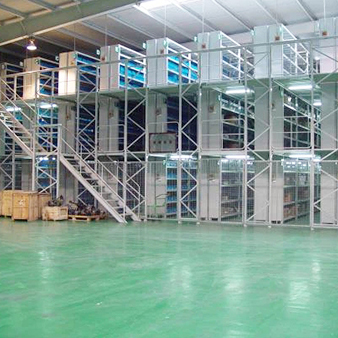E-commerce storage shelves have unique needs to accommodate the storage and retrieval of a wide variety of products, the high volume of orders, and the need for efficient order picking and packing. Here are some of the special needs of e-commerce storage shelves:
Versatility:
E-commerce businesses often deal with a diverse range of products, from small items like electronics to bulkier items like furniture. The storage shelves must be versatile and adjustable to accommodate various product sizes and weights.
High-Density Storage:
E-commerce companies frequently stock a large inventory. High-density storage systems, such as pallet racking or mobile shelving, help maximize space and efficiency.
Fast Order Fulfillment:
Speed is crucial in e-commerce. Storage shelves need to be organized to enable fast order picking and packing. High-priority items should be stored in easily accessible locations.
Batch and Wave Picking:
E-commerce warehouses often use batch and wave picking strategies to optimize order fulfillment. Storage shelves should be organized to support these methods.

Inventory Tracking:
The use of barcodes, QR codes, or RFID technology is common to track inventory and improve order accuracy. Storage shelves should be compatible with these tracking systems.
Flexible Shelving Systems:
The ability to adjust and reconfigure shelving quickly is essential as product lines change and inventory turnover is high.
Pick and Pack Stations:
Designate specific areas with storage shelves for order picking, packing, and labeling. These stations should be strategically located for efficient order processing.
Ergonomics:
Consider the comfort and safety of warehouse staff. The height and layout of storage shelves should be designed to reduce physical strain during order fulfillment.
Safety Measures:
Safety features such as guardrails, backstops, and anti-tip mechanisms are crucial to prevent accidents and ensure the stability of the shelves, especially in high-traffic e-commerce warehouses.
Storage for Returns:
E-commerce businesses often deal with product returns. Provide designated storage areas for returned items to be sorted, inspected, and restocked.
Security:
E-commerce storage areas may require additional security measures to prevent theft or unauthorized access. This may include secure locking systems on storage units.
Inventory Rotation:
Implement a first-in, first-out (FIFO) system to ensure that older stock is used or sold before new inventory is stored.
Order Batching:
Organize storage shelves to facilitate efficient order batching, where multiple orders can be picked simultaneously to improve productivity.
Integration with Warehouse Management Systems (WMS):
Use WMS to optimize inventory tracking, monitor stock levels, and facilitate efficient picking routes.
Custom Shelving Solutions:
Consider custom-built shelving solutions designed to meet the specific needs of your e-commerce business, especially if you have unique or oversized products.
Regular Maintenance:
Regularly inspect and maintain storage shelves to ensure they are in good condition and can support the demands of e-commerce warehousing.
Scalability:
Plan for future growth by selecting storage systems that can be easily expanded or reconfigured as your e-commerce business expands.
E-commerce storage shelves play a critical role in the success of e-commerce businesses, as efficient storage and retrieval processes are essential for quick order fulfillment and customer satisfaction. Customized and adaptable shelving solutions are often the key to meeting the specialized needs of e-commerce storage.